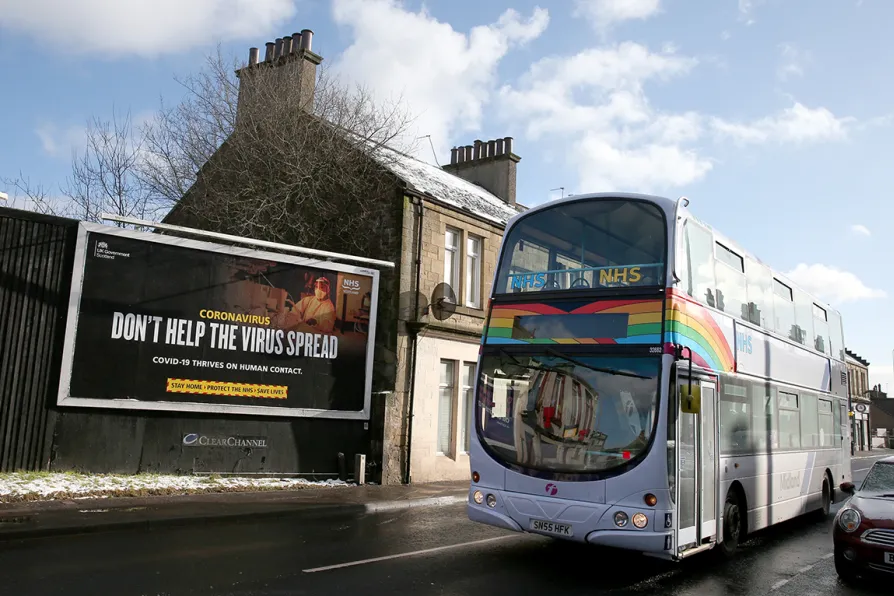
 A bus decorated with a rainbow and NHS stickers passes a Coronavirus related advert on a billboard in Falkirk, Central Scotland
A bus decorated with a rainbow and NHS stickers passes a Coronavirus related advert on a billboard in Falkirk, Central Scotland
THE government’s admission that Covid-19 has not been categorised a “serious” workplace risk was described as “beyond belief” today.
The Health and Safety Executive (HSE) has three categories of risk – serious, significant and minor.
Employment Minister Mims Davies said in a written statement that Covid-19 has been deemed by the HSE to be a “significant” risk to workers, as its effects are “non-permanent or reversible, non-progressive and any disability is temporary.”

Our members face serious violence, crumbling workplaces and exposure to dangerous drugs — it is outrageous we still cannot legally use our industrial muscle to fight back and defend ourselves, writes STEVE GILLAN

Research reveals stress kills three times the number of people than physical accidents at work












